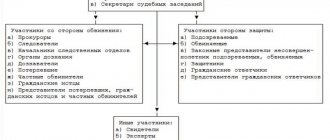Detention on suspicion of committing a crime is always very stressful for a person, especially if he has never been in such situations before.
Many citizens, finding themselves in handcuffs, simply fall into a stupor and find themselves unable to take any meaningful actions to realize their legal rights and opportunities provided for by the criminal procedure law.
One of these opportunities is the right of a detainee to have a telephone conversation, and today in the “Legal Educational Education” section I will tell readers of the site how to implement it.
The right to make a phone call when arrested - what does the law say?
Article 96 of the Criminal Procedure Code of Russia literally says the following:
The suspect, as soon as possible, but no later than 3 hours from the moment of his delivery to the body of inquiry or to the investigator, has the right to one telephone conversation in Russian in the presence of the inquiry officer, investigator in order to notify close relatives, relatives or close persons about his detention and location what is noted in the arrest report
The most important thing here that I would like to convey to the reader is the following:
- It is the responsibility of the investigator or interrogator provide the opportunity to make a telephone call to his relatives or close people.
- The conversation can only be carried out in Russian
- The presence of an investigator or interrogator during a telephone conversation is mandatory . That is, the suspect does not have the right to demand confidentiality of the conversation.
- The content of the conversation should be limited only to notification of the fact of detention and the location of the suspect. However, in my opinion, it would also not be a violation of the law for a detainee to contact his relatives with a request to find a lawyer, transfer necessary things, etc. At least there are no sanctions for this by law.
If the detainee does not want to exercise his right to a telephone conversation, or is unable to do so, then the investigator himself must notify his relatives.
The suspect’s right to call can be considered fulfilled only when he has actually reached his relatives or close persons and notified them of his arrest!
Who can a detainee call?
The list of persons to whom the detainee has the right to make a telephone call is listed in Article 96 of the Code of Criminal Procedure of the Russian Federation. These are close relatives, relatives or close persons.
That is, in theory, a detainee can call any person, including his lawyer, whom he may consider a close person, and the investigator will not have the right to prevent this.
This is important: the suspect’s right to call can be considered realized only if he actually got through to his relatives and informed them about his arrest. If the call fails (for any reason), the suspect should be given the right to repeat it or call another relative or close person
In what cases can a detainee’s right to make a telephone call be limited?
In accordance with Part 4 of Art. 96 of the Code of Criminal Procedure of the Russian Federation, if in the interests of the preliminary investigation the fact of detention must be kept secret, the investigator or interrogating officer may deprive the suspect of the right to make a telephone call.
However, in this case the following formalities will need to be completed:
- Issue a reasoned resolution in which to set out compelling grounds and reasons why the fact of detention must be “classified”
- The specified resolution must be agreed upon with the supervising prosecutor, having received the appropriate signature from him
This rule applies only to adult suspects. Minor citizens have the right to call in any case!
Procedure for arrest
During the detention process, the suspect has the right to make a telephone call to loved ones or a prospective lawyer within three hours. Within 12 hours, the investigator must notify the prosecutor of the arrest of a specific person.
In conditions where a person under 18 years of age is detained, law enforcement agencies are obliged to notify his parents or guardians immediately upon the arrest.
Important fact
In conditions where a lawyer is detained, the regional chamber of lawyers must be notified within 12 hours.
Upon detention, a report is drawn up within three hours. It reflects:
- date, time and place of detention;
- grounds for arrest;
- date and specific time (with exact minutes) of drawing up the document;
- what was discovered as a result of a search of the citizen’s personal belongings.
Also, during the period while the suspect is considered detained, law enforcement agencies have the right to conduct interrogations. Parents or guardians have the right to be present during the interrogation of a minor detainee. Also, the interrogation must be carried out on the first day of arrest.
The detainee has the right to meet with his lawyer. This meeting should be held in private.
While the suspect is in custody, the investigator must investigate the circumstances of the case and provide sufficient evidence for the suspect to become an accused. If this does not happen, then the citizen is released from arrest, providing him with a certificate of arrest, which indicates the date and place of detention, as well as the reasons for the arrest, with a specific date and place of release.
In order for the procedure for releasing a citizen to be considered legal, it is necessary that the circumstances meet the following conditions:
- there is no documentary evidence of the suspect’s guilt;
- Art. was violated during the arrest. 91 of the Code of Criminal Procedure (i.e. the person was not caught red-handed, no traces were found on his clothes or in his apartment, and the witnesses did not give any testimony regarding the involvement of a particular citizen in the case);
- there are no grounds for further arrest.
The period of detention may be increased at the request of the investigator.
Lawyer - Pushkarev Yakov Vasilievich
Federal Law No. 437-FZ of December 30, 2015 introduced significant changes to the Criminal Procedure Code of the Russian Federation regarding the procedure for detaining a suspect.
The changes concern mainly Article 96 of the Code of Criminal Procedure of the Russian Federation. The new edition of part one of this article now establishes that the suspect, as soon as possible, but no later than 3 hours from the moment of his delivery to the body of inquiry or to the investigator, has the right to one telephone conversation in Russian in the presence of the inquiry officer, investigator in order to notify close relatives, relatives or close persons about their detention and location, which is noted in the arrest report. Previously, the right of a suspect to make a telephone call was enshrined in Part 7 of Article 14 of the Federal Law “On Police” dated 02/07/2011 No. 3-FZ, however, this article did not impose an obligation on any police officer to exercise this right. Now this responsibility is assigned to the interrogating officer or the investigator carrying out the arrest, since he will have to make a note in the arrest report whether the suspect has used this right or not.
According to the new version of Article 96 of the Code of Criminal Procedure of the Russian Federation, it is possible to deprive a suspect of this right only if it is necessary to keep the fact of detention secret in the interests of the preliminary investigation. Deprivation of the right to make a call must be formalized by a resolution of the inquiry officer, investigator with the consent of the prosecutor (Part 4 of Article 96 of the Code of Criminal Procedure of the Russian Federation).
However, Part 11 of Article 14 of the Law “On the Police” categorically states that the right to a telephone conversation is not granted to suspects:
- those who escaped from custody, evading serving a criminal sentence;
- evading administrative arrest;
- wanted;
- evading compulsory medical measures or compulsory educational measures prescribed by the court;
- those who have escaped from a psychiatric hospital or are hiding from court-ordered involuntary hospitalization in such an institution.
As you can see, part 4 of article 96 of the Code of Criminal Procedure of the Russian Federation and part 11 of article 14 of the Law “On the Police” are in a certain contradiction. If the Code of Criminal Procedure of the Russian Federation establishes that the only basis for depriving the right to make a call is the need to keep secret the very fact of detention, then the Law “On Police” completely deprives certain categories of citizens of such a right. If, according to the Code of Criminal Procedure, to deprive the right to make a call, a resolution of the investigator approved by the prosecutor is necessary, then according to the Law “On the Police” nothing of this is required; when a person asks for a phone number, they simply say “no” and that’s all. So what should an investigator do when detaining, for example, a wanted citizen?
I think that the investigator should proceed from the provisions of Article 1 of the Code of Criminal Procedure of the Russian Federation, which states that criminal proceedings are carried out only in accordance with the Code of Criminal Procedure of the Russian Federation and the Constitution of the Russian Federation. No other laws, within the meaning of this article, can determine the procedure for performing certain procedural actions, including detention.
Based on these provisions of the law, the investigator is obliged to act in accordance with the Code of Criminal Procedure of the Russian Federation and provide the opportunity to make a notification call to the wanted person, the person who escaped, and all other citizens.
On the other hand, the question currently remains open whether the courts will consider it a significant violation of the law not to provide the suspect with the opportunity to exercise his right to make a telephone call. Will it be possible to recognize such a detention as illegal if there were all grounds for the detention and, in general, the procedure for detention was not violated?
I believe that a violation of this right in the future may entail a wide variety of consequences, from a private decision to the imposition of disciplinary liability on investigators and interrogators, however, a violation of this right in itself cannot be a basis for refusing to choose a preventive measure, canceling or changing preventive measure.
In general, the introduction of the changes under consideration to the Criminal Procedure Code is a serious step towards the humanization of criminal proceedings, making them more humane.
If you or your loved ones need legal assistance from a criminal lawyer in Khabarovsk, you can contact me by phone
Sincerely, lawyer in Khabarovsk Y.V. Pushkarev
The right to telephone conversations, regardless of the wishes of the investigator
October 27, 2022 10:38 am
A bill has been submitted to the State Duma guaranteeing the right to telephone conversations and meetings with relatives without special permission.
On October 22, the State Duma of the Federal Assembly of the Russian Federation received bill
No. 1042392-7 “On amendments to Articles 17 and 18 of the Federal Law “On the detention of suspects and accused of committing crimes”.”
Advisor to the Russian Federal Law Enforcement Agency Nver Gasparyan noted that increasing the duration of communication between accused persons and their loved ones in pre-trial detention centers may worsen the existing problem of lawyers’ access to their clients. At the same time, according to him, “the right to telephone conversations, independent of the wishes of the investigator, will allow the accused to legally communicate with their relatives.” According to AG, the developer, LDPR deputy Ivan Sukharev, believes that the adoption of the amendments will create a reasonable balance between the interests of the preliminary investigation and the principle of the inadmissibility of arbitrary violation of constitutional rights to privacy, personal and family secrets.
Currently, suspects and accused persons in custody can exercise the right to paid telephone calls only with the permission of the court or the person in charge of the criminal case. Moreover, in any case, such calls are allowed only if technically possible and under the control of the administration of the institution (clause 6, part 2, article 17 of the Law on Detention).
In addition, suspects and accused persons, with written permission from the person in charge of the criminal case, have the right to two visits per month. The maximum duration of such a meeting is three hours (Part 3 of Article 18 of the Law on Detention).
The bill provides that any telephone conversations with relatives, as well as visits with those relatives who are not witnesses in the case, are carried out without special permission. In other cases, as now, you will have to obtain permission. It is noteworthy that if the amendments to clause 6, part 2, art. 17 of the Detention Law there will be a mention of the ability of prisoners to communicate via videoconferencing.
It is assumed that the duration of one visit and the order of the visits will be determined by the administration of the place of detention. Moreover, in Part 3 of Art. 18 of the Law on Detention is proposed to establish that one visit cannot be less than three hours.
“It is well known that investigators issue permission to visit, as a rule, in the form of an incentive for admitting guilt and assistance provided, and in other cases they can easily refuse. It is problematic to appeal such a refusal. The right to telephone conversations, which does not depend on the wishes of the investigator, will allow the accused to legally communicate with their relatives,” says Nver Gasparyan, adviser to the Federal Chamber of Lawyers.
He also welcomed the establishment of a minimum duration of a visit. “However, increasing the duration of communication between accused persons and their loved ones in pre-trial detention centers may worsen the existing problem of lawyers’ access to their clients. It is long overdue to introduce a procedure in which a lawyer would have the right to telephone conversations with the accused using video conferencing, believes Nver Gasparyan. – This opportunity is relevant in connection with coronavirus infection and partly solves the difficulties with long queues. The lawyer would be able to independently decide in which cases to use a call, and in which - a face-to-face confidential meeting in the pre-trial detention center.”
Detailed information is published on advgazeta.ru
SharePrint Direct link to the material:
Share
Who can the suspect (accused) call?
Special attention is given to the fact that the suspect’s right to a telephone call presupposes a conversation with close people, and not with relatives, and therefore the detainee can call any person whom he considers close to him, including a lawyer.
The right to a telephone call during detention must be exercised without fail, since the timely arrival, and therefore the timely assistance of a specialist, the one chosen by the detained person, and not appointed by the state, allows one to better navigate what is happening and take the most correct position in a criminal or administrative case.
The fact that the right to make a call during administrative detention by the suspect was actually exercised must be necessarily reflected in the protocol. Only in the case where the detainee refused to call or was unable to do so due to physical or mental disabilities, the interrogating officer or investigator notifies relatives or friends on their own, which is also noted in the protocol, thereby fully fulfilling all human rights during police detention.
Read more about the procedure for filing a civil claim in a criminal proceeding by following the link.








